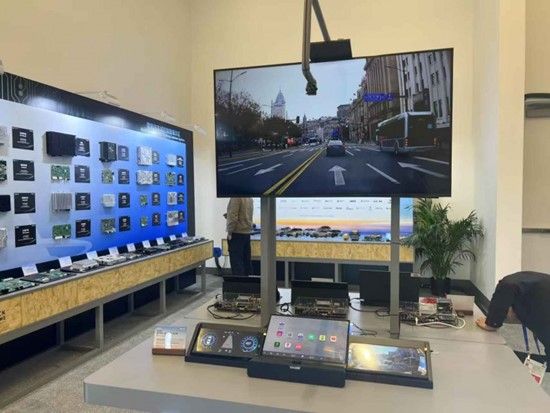From January 7th to 10th, the 2025 International Consumer Electronics Show (CES) was held at the Las Vegas Convention Center in the United States. As an annual global technology event, this year’s CES attracted more than 4,300 companies to participate in the exhibition, of which the number of Chinese exhibitors reached nearly 1,500, accounting for over 30% of the total.
AI once again emerged as the hottest topic at this year’s CES. However, compared with previous years, the application of AI terminals has drawn more attention this year. From AI PCs to intelligent home appliances, from intelligent cars to wearable devices, AI is sweeping the entire CES with an unstoppable momentum.
In the field of intelligent cars, more than 250 automotive technology-related companies participated in the exhibition, the highest number in history. Exhibiting companies include global automakers such as BMW, Honda, Hyundai, and Mercedes-Benz. Chinese automakers include Zeekr, Great Wall, XPENG AEROHT, etc. Automotive chip companies, including TI and Black Sesame Intelligence joined the exhibition alongside leading software companies such as Banma. Intelligent cockpit, intelligent driving, high-computing chips, operating systems, AI big models, etc. have become key words in technology.
BMW brings a new generation of super-sensing intelligent cockpit, including four new technologies such as eye-level panoramic display, 3D head-up display, super-sensing intelligent steering wheel, and centripetal control, emphasizing “driver-centered approach .” Also released with the new cockpit is BMW’s new-generation operating system, which is a collaboration between BMW and a leading Chinese technology company. As the underlying software architecture of BMW’s first panoramic iDrive, it will be equipped with the first new-generation mass-produced model and will meet Chinese consumers in 2026.
Honda showcases its upcoming self-developed new operating system, which is an important part of Honda’s intelligence strategy.
Smart focuses on intelligent driving systems and cockpit technology. Great Wall Motor showcases WEY07, equipped with the independently developed Coffee Pilot Ultra intelligent driving system and the AI-empowered Coffee OS 3.1 intelligent cockpit system.
Among chip manufacturers, Qualcomm announced the progress of nearly ten cooperation projects based on Snapdragon® Digital Chassis ™ solutions. Its customers include Leap Motors, Alps Alpine, Amazon, Mahindra, Hyundai Mobis and Royal Enfield. Black Sesame technologies, TI, etc. also bring the latest solutions in the field of smart cockpit and cabin-driving integration.
It is reported that the two chip companies respectively demonstrated a single-chip multi-system cabin-driving integration solution jointly created with Banma, in which Banma Hypervisor and AliOS smart cockpit operating system played a key role. The integration of the OS and chip lays the foundation for intelligent automotive technologies.
As the first technology company in China to enter the field of automotive intelligence, Banma has been implementing applications earlier and more extensively than most of its peers. Over the past decade, Banma has equipped over 7 million vehicles with smart cockpit systems and services, achieved more than 20 billion voice interactions, currently has about 4 million monthly active vehicles, and cooperates with more than 400 Internet and car service partners.

It is the profound experience and data support accumulated from many years of service that enables Banma to think about the future of automotive intelligence from the bottom up. Last September, Banma released its latest Intelligent cabin technology brand “Yan AI”, officially opening the AI era of large-scale intelligent cockpit models.
Compared with previous intelligent cockpit products, Yan AI is built on the Tongyi basic model and is designed specifically for intelligent cockpit scenarios. In the intelligent cockpit scenario, it delivers advancements in four key areas: natural communication, perception scenario, organizational service, and cognitive evolution, and establishes a new paradigm of human-vehicle relationship in the AI era. Since the release of Yan AI, top German and Japanese automakers and leading domestic automakers have reached cooperation with Banma.
